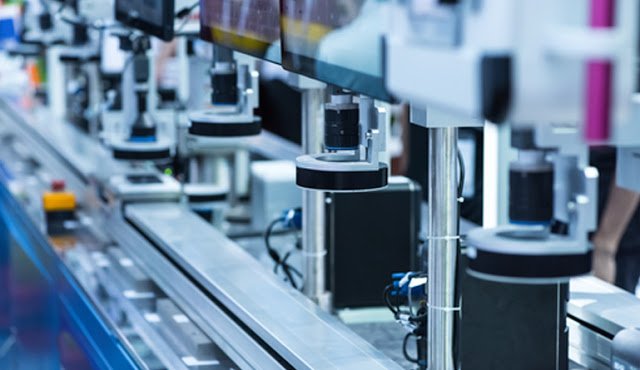Raspberry Pi in Industrial Applications
Industrial operations require the combination of harsh operating environments, high I/O capacity, Robust and complex functionality requirements for which programmable logic controllers (PLCs) were mainly used but this increase the setup cost but however for many smaller operations, the Raspberry Pi 3 platform offers a low-cost solution with substantial performance capabilities. Fully capable of handling dedicated industrial applications tasks
Some of the Applications are described below:
- Industrial Automation:

Raspberry Pi can be used to automate various specific tasks such as:
Control of Three phase motors.
Controlling Inputs and Outputs.
Auto triggering of devices when sensor is being sensed.
Conveyor control.
Pick and Place of products.
Automatic sortation of products in a conveyor lines, and many more
- Production and Machine Monitoring:

Production monitoring can be done in real time from by interfacing Raspberry Pi to any machine ranging from CNC, VMC, SPM or having PLC . This helps the Supervisor as well as the stake holders to track the production in real-time and henceforth it can help them to achieve their target better.
Some Features are:
Live Monitoring of Production Count.
Hourly, Daily, Monthly analysis of production and its predictions based upon previous trends with advanced Machine Learning algorithm.
Downtime of your machine.
Machine Status(Run/Idle/On/Off).
Current Tool in Use.
Cycle time of Jobs.
Time difference between two Jobs(It can be used to track operator's efficiency).
Power ON time of machine.
Motion Time of Machine.
CNC/VMC Program currently running.
SMS and Mail Alerts.
- Fault identification:

Raspberry Pi connected to any machine can track down the error codes and faults occurred in real-time of that machine and the operator & Supervisor can get the error information via alerts and it will helps them in quick diagnostics. Enhanced features such audio and visuals can also be given connecting Pi to large TV screens and monitors.
The status of these machines can also be monitored remotely by Company Owner sitting at home or any remote location.
- Barcode Recognition System:

By connecting a camera to Raspberry Pi and mounting it in fixed position by the side of running conveyor lines, we can capture the barcodes of each passing boxes/products and as well as their images in real time by using advanced computer vision and machine learning algorithms.
Camera based production counting ,Quality and separating the damaged product can also be implemented.
- Predictive Maintenance:

Predictive Maintenance is to predict when equipment failure might occur, and to prevent the occurrence of the failure by performing maintenance. Monitoring for future failure allows maintenance to be planned before the failure occurs. Ideally, predictive maintenance allows the maintenance frequency to be as low as possible to prevent unplanned reactive maintenance, without incurring costs associated with doing too much preventive maintenance. For Predictive Maintenance to happen, we have to capture lots of realtime data's from the machine for the Analytics.
Raspberry Pi can be used here as a data-logger by interfacing it with the machine via communication interface. It will capture the real-time data, process it and henceforth send it over to Cloud platform or centralized server for the Analytics engine running advanced machine learning Algorithm.
- Energy Monitoring System:

Energy monitoring system is management technique that uses energy information as a basis to eliminate waste, reduce and control current level of energy uses and improve the existing operating procedure.
Raspberry Pi can be interfaced with any Smart Energy Meters/ Energy Meter having communication interface. It can capture all the real-time energy parameters of the whole industrial plant and send it over to cloud platform for its live monitoring as well as for the analytics.
If energy meter is connected directly to machine, than its live status can be monitored such as Machine OFF, No Load, Full Load & Ideal running state from the current consumption parameter.
- Monitoring of Variable Frequency Drives(VFD):

Variable Frequency Drives (VFD) are often used on critical applications in remote locations. Examples of remote and critical VFD applications would be Automation industries, Compressor station, oil and gas pipelines, water treatment and pumping, and oil production, etc.
Raspberry Pi can be used to capture the realtime operational status and parameters from these VFD via any communication interface and send it to cloud platform. With that we can monitor the VFD's live parameters remotely and get alerts if any fault occurs.
Image Source: Google(For Reference)
These are some of the used cases of Raspberry Pi in Industrial environment. If someone have any other applications implemented than please do inform me
Follow my Blog at https://raspberrypiworld.blogspot.com/2018/11/raspberry-pi-in-industrial-applications.html
Congratulations @nectaranderson! You received a personal award!
You can view your badges on your Steem Board and compare to others on the Steem Ranking
Vote for @Steemitboard as a witness to get one more award and increased upvotes!